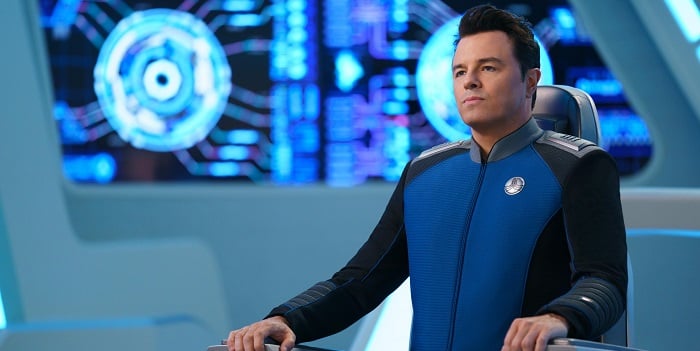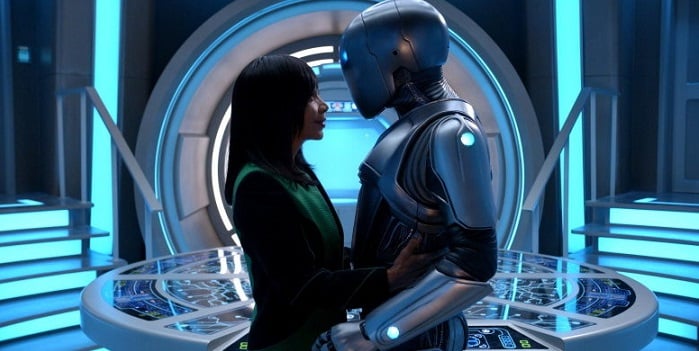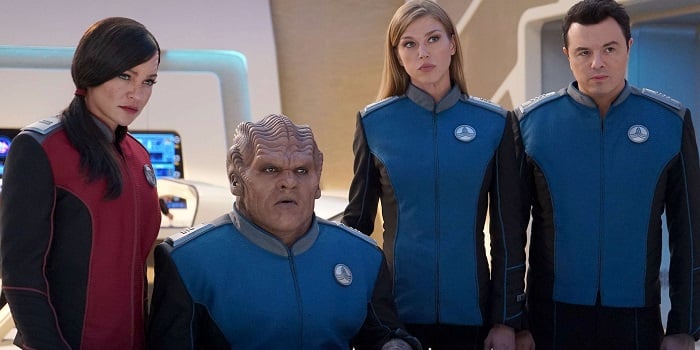The Orville, a sci-fi show starring Seth MacFarlane, Adrianne Palicki, Scott Grimes, Penny Johnson Jerald, and J. Lee, among others in primary roles, initially aired on Fox for the first two seasons — Hulu later picked it up for its third season. The show is created (written and directed) by MacFarlane himself and follows the story of a spacecraft called the USS Orville and the employees who work there. But what makes it different from other space-exploring sci-fi flagbearers like Star Trek or Battlestar Galactica?
Well, The Orville has this unique blend of MacFarlane’s signature humor, a focus on character-driven stories, and a balance of episodic and serialized narratives. While the scientific and social aspects are not always as rigorous in The Orville (when compared to Star Trek), its treatment of intergalactic travel with a lens of comedy and in a thought-provoking manner is something only a few truly appreciate. The Orville, however, was canceled on Hulu after season 3 — due to low viewership, financial issues, and MacFarlane’s focus on other projects. Will it ever return? It’s not yet certain.
The Orville While Might Be Far-Fetched, Touched on the Mind-Boggling Intricacies of Origins of Civilizations

The Orville presents thought-provoking scenarios with comedic takes, particularly in its exploration of various civilizations across the universe. One notable example is in the episode “Mad Idolatry,” where the crew encounters a planet that phases in and out of existence every 700 years. It follows the impact of cultural interference when Kelly (Palicki) becomes a deity figure to the planet’s inhabitants — solely for helping a little girl with her wound — and dramatically altering their whole planet’s societal evolution in a short span. Another intriguing instance is when the crew visits a planet where social media likes and dislikes govern the justice system, reflecting on the potential extremes of our own society’s reliance on social media for validation and judgment.
Better yet, there’s another episode called “If the Stars Should Appear,” where the crew discovers a massive generational ship housing a civilization that is unaware that they are actually on a spaceship. That civilization has an artificial sun, moon, night, and day, and yet they have no idea it’s artificial. The episode touches on themes of isolation and the dangers of a society living under a theocratic regime, unaware of the larger universe outside.
Another civilization that reaches out to the union in another episode, makes life-altering decisions based on astrological signs. When the crew travels to their planet, Kelly and Bortus end up getting imprisoned due to their birth months as those born in certain months bring bad luck to their society. The way all these thoughts and theories are presented in The Orville, is beautiful, to say the least.
The Orville’s Concept of Commonality Makes People See the World Differently


The Orville pushes an excellent concept of commonality in its sci-fi story. It is set in a time when all of humanity has resolved its issues and is working toward a common goal — intergalactic travel. Just as in the real world, the people within a country work toward a common goal, the world in The Orville is so well-established that it has a central government that only works toward intergalactic travel and the growth of human civilization. All humans are well-fed, well-clothed, and taken care of by the global central government. Each person’s currency is his/her reputation and not money. So they get up and work, each day, for a purpose!
In real life, the concept of commonality is a powerful one as it promotes peace. It’s very similar to how some of the powerful and oil-rich Arab countries in the Middle East have been tackling their matters for years now. They try to stay as far away from the world’s conflicts as people from all over the world live and work happily in their own cities (Dubai, for instance). This idea is particularly powerful in the context of The Orville’s interstellar setting, where the vastness of space, the complexity of alien civilizations, and the goal of furthering human civilization beyond just earth, are way too important matters for the world to intertwine itself in conflicts.
It Explored Intergalactic Travel, Time Travel, and Artificial Intelligence Focused Plots in Three Seasons


In its three seasons, The Orville revolves around three big breakthroughs that humanity is currently working on right now — time travel, space travel, and artificial intelligence (AI). While practical time travel is a far-fetched concept, it has always fascinated people. However, the show’s focus on traveling to different planets within the universe aligns with what real-world companies like SpaceX are doing right now, especially in their plans to send humans to Mars.
The most timely topic the show explores is AI. With major breakthroughs in AI happening in 2023, the way The Orville portrays intelligent machines and their relationships with humans is quite close to the advancements we’re seeing today in the real world. It also details the dark side of them and the dangers of artificial intelligence that all of us are somewhat concerned about. This connection makes The Orville not just a fun sci-fi show but also a reflection of today’s scientific frontiers and how they might look in the future. As of yet, no streaming service has picked up The Orville for a season 4, making the possibility of another season highly unlikely.
